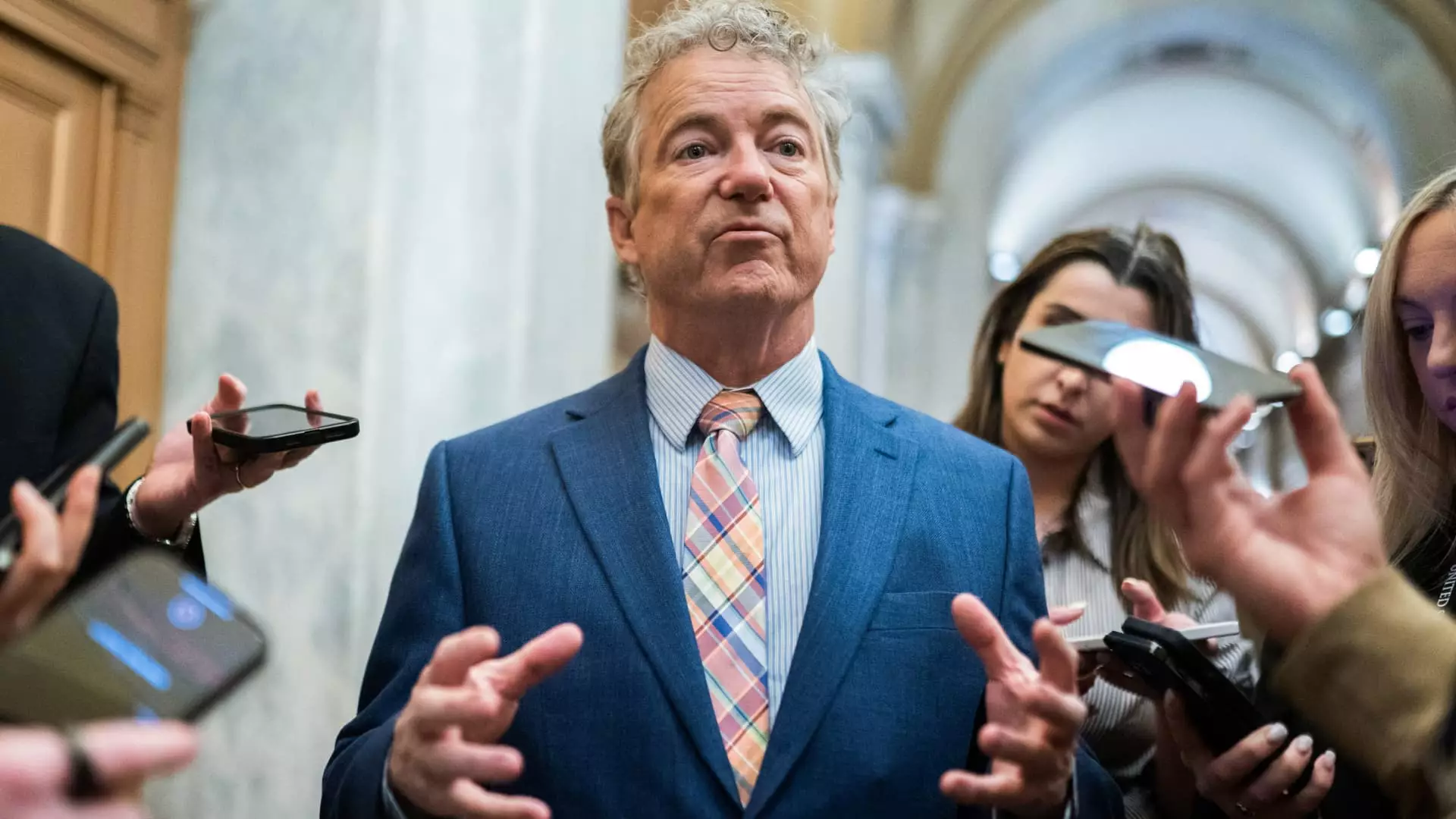In recent days, the political landscape has been set ablaze by President Donald Trump’s fiery exchange with Sen. Rand Paul, a figure who has often found himself at odds with the GOP establishment. Trump’s vehement defense of a sprawling budget bill that includes a monumental $5 trillion debt ceiling increase juxtaposes sharply with Paul’s warnings of fiscal irresponsibility. As someone who leans toward center-wing liberalism, I can’t help but delve into the alarming implications of this budgetary trajectory.
From the outset, we must recognize that debates around the national debt and budget are often clouded by political rhetoric. Trump’s assertions that the bill will catalyze “tremendous GROWTH” may appeal to certain voter sentiments, but they also mask a deeper, more troubling reality: the bill is fundamentally flawed. Increasing the debt ceiling should never act as a panacea for economic anxieties; rather, it often indicates a failure to address underlying fiscal issues.
Rand Paul: A Call for Fiscal Responsibility
Sen. Rand Paul’s libertarian critique is refreshingly grounded in fiscal conservatism. He rightly argues that raising the debt ceiling is tantamount to accepting irresponsibility, waving the white flag on budgetary discipline. The notion that borrowing an additional $5 trillion should be dismissed as a mere political inconvenience is ludicrous. When the government increases its borrowing limits, it signals to the public—and to future generations—that fiscal recklessness is permissible. With national debt already edging towards unsustainable heights, Paul’s concerns do not stem from self-serving politics but rather from a troubling commitment to sound money management.
Interestingly, Paul’s stance highlights a recurring theme in politics: ideological purity versus pragmatic governance. His insistence on budgetary prudence places him at odds with his party’s increasingly populist tendencies, as demonstrated by Trump’s sweeping fiscal ambitions. This gulf not only reveals the schism within the Republican Party but also underscores an existential question facing our nation’s leadership: will we prioritize sound economic principles or continue to chase ephemeral gains at the cost of future stability?
Trump’s Fractured Vision of Growth
Trump’s categorization of Paul’s views as “crazy” rings hollower upon closer examination. The former president appears to conflate immediate financial influx with long-term growth, a misunderstanding that is prevalent among many politicians today. The president’s fixation on short-term tax cuts and spending designed to serve the immediate interests of his voter base ignores the perilous path this can carve for fiscal policy.
The proposed debt ceiling hike is touted as a necessity for growth, yet true growth is predicated on sustainable economic practices. The added financial burdens placed on the national balance sheet are not mere numbers—they translate into increased taxes and diminished public services down the line. For individuals who find themselves relying on programs like Medicaid and SNAP, as proposed in the budget plan, this isn’t just a theoretical debate; it’s a harsh reality that will impact their livelihoods.
The framing of the budgetary bill as “the one big, beautiful bill” is misleading at best and deceptive at worst. What’s beautiful about burdening future generations with an unsustainable debt load? Instead of addressing the root causes of economic malaise, this budget seeks to merely placate concerns with grandiose promises of growth, but at what actual cost?
The Political Game of Compromise
Trump’s belligerent posturing towards dissenters within his ranks—be it Paul or any other Republican senator—reflects a troubling trend in contemporary politics. The pressure to conform to party lines often eclipses opportunities for substantive debate, reducing meaningful discussion into a game of survival where those daring to dissent risk the ire of the party’s most vocal leaders. The reconciliation process through which this budget must pass compounds the problem, as it limits the possibility for collaborative policy-making that includes diverse perspectives.
As Republicans grapple with the implications of this debt-centered budget, the broader political arena must confront its own culpability in allowing fiscal irresponsibility to fester. The dialogue must shift from reactive engagements driven by ego and partisan loyalty to proactive measures aimed at accountability. It’s time we move beyond blaming dissenters and start recognizing the urgent need for a balanced approach to governance, where the hard choices in fiscal policy are no longer stigmatized but embraced as a vital necessity for the nation’s future well-being.


Leave a Reply